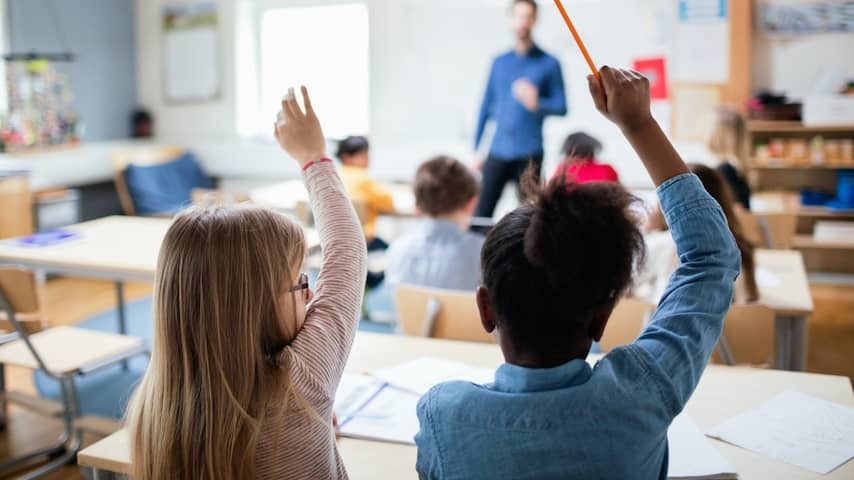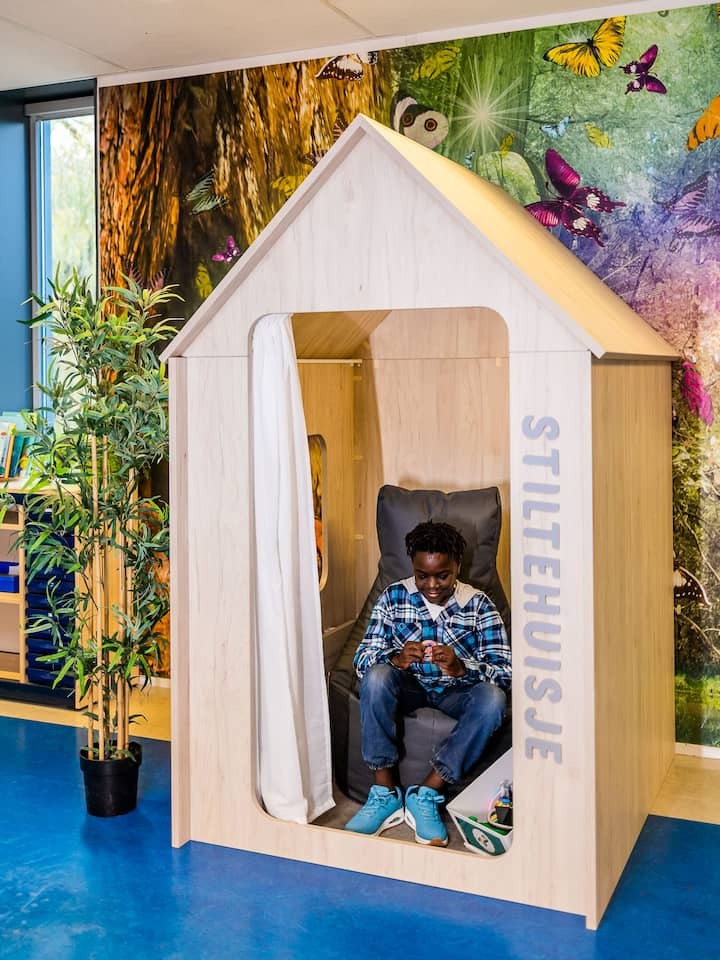
These are the so-called ‘Golden Weeks’ of Education. Children are, ConsciOutly or Unconsciously, Finding Their Place in the classroom. Students Explore Each Other, The Teacher, and the Rules. They have to get used to the hustle and bustle and all the activities again.
Children with Healthy Sensory Processing Generally Do Well, Accordance to Miriam Otten, Former Primary School Teacher. Accordance to Otten, these Golden Week A Good Opportunity for Teachers to Incorporate Moments of Rest Into The New Routine. A lot is asked of children at school, so it is important to have a good balance between exertion and relaxation.
An Oversstimulated Child Experiences Stress
Everyone has their own unique sensory processing. A Stimulus is information that comes in through the senses. So You Can See, Hear, Feel, Smell, And Taste Stimuli. In Case of Overstimulation, The Stimulus Filter Does Not Work Properly and Too Many Stimuli Come in At The Same Time. An overstimulated child May experience stress, because to gain control, or grumble a lot.
“Children with a poor functioning stimulus filter can also be understimulated,” Says Otten. “Then too too few stimuli come in. In these children, we see a lot of restlessness, impulseivity, and hustle and bustle. Or they come across as sluggish and uninterested.”
But it is not useful to label every child as ‘overstimulated’ when they are busy, angry, impatient, do not listen, or do not participate well. “We all have limits,” Says Otten. “If I put you next to the speakers at a techno festival for three hours, you will really be overstimulated afterward, even if you have normal, healthy sensory processing. Rest is the key word then.”
Resting in a Quiet House
Otten Came Up With A Concept with Quiet Houses That Have Now Been Placed in Schools and After-School Care Centers Throughhout The Netherlands. In Such A Quiet House, Children can retreat when they are Overhelmed by Everything That Is Happening Around Them. In the house there is a beanbag, and there is an eye mask, headphones, a blanket, an alarm clock and a curtain to close off the house.
“This way children can empty their stimulus tank,” Says Otten. “Sometimes They Fall Asleep, or they play with the fidget box which contains all child or tactile materials, or they do absolutely nothing for a while. Nothing is expected of children and they can really relax.”
The Quiet House is there for all children, Otten Emphasizes. “Not only over -stimulated children benefit from it, but also if you’re just having a bad day, didn’t sleep well, or had a fight with a friend. Children come out of it with a softer head: rested and relaxed, whatich allows to perform to perform wells to perform.” “”
Letting children feel Feel for Themselves when it is too much so that they take care of themelves: that is an incredible importing skill that you will benefit from for the rest of your life. “That is self-care: Feeling what you need, what your limit is and then’s bar of Yourself. That is how you get powerful Citizens.”

‘Rest must Become Normal’
“In a relaxation lesson we don’t do any floaty things,” Says Heijkant. “We leave our heads for a moment, pay Attention to our bodies and feel and reflect on the signals it gives us. Feet on the ground, exhale deeply. A Small Relaxation Exercise or at leastes already gives a Different atmosphere in the Group. Softer, More Relaxed and Can Absorb Information with Renewed Focus. “
One of the Nicest Relaxation Exercises, Says Heijkant, was the day she Brought Thirty Blankets to Group 1 and 2. “They were allowed to find a place in the classroom with their white and lie dowy like curled, Dreamallers Layallers Layallers Layallers Thumbs gets into their mouths.